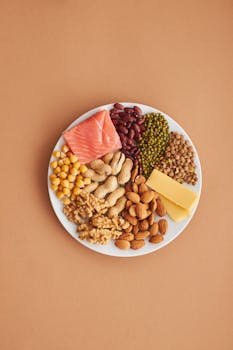Risks
A gluten-free diet, when not medically necessary (as in the case of celiac disease or non-celiac sensitivity), can have several negative health and lifestyle impacts. Here are the main effects to take into account:
1. Nutritional deficiencies :
Grains containing gluten, such as wheat, barley and rye, are rich in essential nutrients, including fiber, B vitamins (thiamine, niacin, folate), iron, zinc and magnesium. A gluten-free diet that does not compensate for these nutrients can lead to deficiencies. A study published in The American Journal of Clinical Nutrition (2017) highlighted that people following a gluten-free diet without a medical reason may be more likely to be deficient in fiber and vitamins, including vitamins B and D.
2. Increased risk of cardiovascular diseases :
Some studies have shown that people who follow a gluten-free diet may consume less fiber, which is crucial for heart health. A diet low in fiber can lead to increased cholesterol and cardiovascular problems. A study conducted by the Harvard School of Public Health (2017) found that individuals who avoid gluten without medical reasons may have a higher risk of coronary heart disease because they miss out on the protective benefits of fiber found in whole grains.
3. Processed and nutrient-poor products :
Industrial gluten-free products may be more processed and high in sugars and fats to compensate for the texture and taste lost when gluten is removed. These products may be higher in calories and less nutritious than their wheat-based counterparts. By replacing whole grains with low-fiber alternatives, such as starches or white rice, consumers may consume more empty calories and miss out on essential nutrients.
4. Financial cost :
Gluten-free products are often more expensive than their conventional counterparts. According to a study published in the Journal of Human Nutrition and Dietetics (2015), gluten-free foods can cost up to 242% more. This can make the diet expensive and difficult to maintain over the long term, especially if the benefits are not clearly justified.
5. Loss of dietary diversity :
Gluten is an integral part of many types of grains and foods. By eliminating it without medical necessity, people can reduce the diversity of their diet, which can limit exposure to various nutrients. Additionally, it can lead to a more restrictive approach to eating, with a loss of foods rich in fiber, protein and vitamins, such as whole grains.
6. Psychological and social effect :
Adopting a gluten-free diet can be restrictive, especially in social situations or at restaurants, where choices are often limited. For people who don't need it, this compulsion can create unnecessary stress or anxiety around food, according to some studies published in the Journal of the Academy of Nutrition and Dietetics (2018).
7. Lack of health benefits in non-intolerant people :
There is no strong evidence that gluten is harmful to people who do not have celiac disease or gluten sensitivity. A 2017 study in Gastroenterology confirmed that there are no proven benefits to removing gluten from the diet in healthy people.
Conclusion :
Following a gluten-free diet without a medical reason can lead to nutritional deficiencies, increase the risk of cardiovascular disease, lead to dependence on ultra-processed foods, and impact dietary diversity and social life. Unless a medical diagnosis indicates a gluten sensitivity or autoimmune disease, a balanced diet that includes whole grains is generally healthier for the majority of individuals.
Actions to take
To avoid the negative repercussions of a gluten-free diet when not strictly necessary for medical reasons, it is essential to take proactive steps to maintain a balanced and diverse diet. Here are some tips to minimize the risk of nutritional deficiencies and other adverse effects:
1. Ensure sufficient fiber intake :
Fiber is crucial for digestion and cardiovascular health, but it is often reduced on a gluten-free diet. To compensate, include naturally high-fiber, gluten-free foods such as:
- Legumes (lentils, chickpeas, beans)
- Seeds (chia, flax, buckwheat)
- Quinoa, millet, brown rice
- Fresh fruits and vegetables (apples, pears, green vegetables)
These foods will help maintain good intestinal transit and reduce the risk of heart disease.
2. Opt for enriched gluten-free products :
Choose gluten-free products that are enriched with vitamins and minerals to offset the nutrients often found in gluten-containing whole grains. Specifically look for those that contain:
- Iron
- B vitamins (thiamine, riboflavin, niacin, folic acid)
- Magnesium and zinc
Manufacturers of gluten-free products sometimes add these nutrients to prevent deficiencies.
3. Favor naturally gluten-free alternatives :
Instead of turning only to industrial gluten-free products, choose foods that are naturally gluten-free but rich in nutrients. For example :
- Quinoa, buckwheat, amaranth
- Brown rice, corn
- Sweet potato, potatoes
- Nuts, seeds and legumes
These alternatives make it possible to maintain a rich and varied nutritional intake without depending on processed products.
4. Monitor vitamin and mineral intake :
Certain vitamins and minerals, such as B vitamins, iron, calcium and magnesium, may be less present on a gluten-free diet. You can avoid deficiencies by consuming:
- Green leafy vegetables (rich in iron and magnesium)
- Dairy products or calcium-enriched alternatives
- Eggs, lean meats and seafood (for B vitamins and zinc)
- Pumpkin seeds, almonds, and other nuts for magnesium
If you have concerns about potential deficiencies, a multivitamin supplement may be considered after consultation with a healthcare professional.
5. Limit gluten-free processed products :
Industrialized gluten-free products may be high in sugar, salt and saturated fat to compensate for the lack of texture and taste. Try to limit the consumption of these products and prefer whole, unprocessed foods. Read labels carefully to avoid products that contain unnecessary additives or empty calories.
6. Maintain dietary diversity :
One of the keys to avoiding negative repercussions is to maintain a varied diet. Including a variety of sources of protein (legumes, fish, lean meats), vegetables, fruits, healthy fats (olive oil, avocado), and complex carbohydrates will help you meet your nutritional needs while following a weight-free diet. gluten.
7. Balance calorie intake :
Some gluten-free foods may be higher in calories or less filling. To avoid overconsuming empty calories, try balancing your meals with protein, fiber, and healthy fats for lasting satiety. For example, a quinoa dish with vegetables and a protein source can make a complete and nourishing meal.
8. Consult a healthcare professional :
If you are considering following a gluten-free diet, it is always a good idea to consult a nutritionist or dietician. This will help ensure you're getting all the nutrients you need and avoid common dietary mistakes.
Conclusion :
A gluten-free diet can be balanced and healthy, even without gluten intolerance, as long as you follow appropriate nutritional strategies. Focus on whole, natural, nutrient-dense foods, and be sure to watch your fiber, vitamin and mineral intake. By diversifying your diet and avoiding processed products, you can maintain good health while avoiding the negative impacts of a gluten-free diet.







